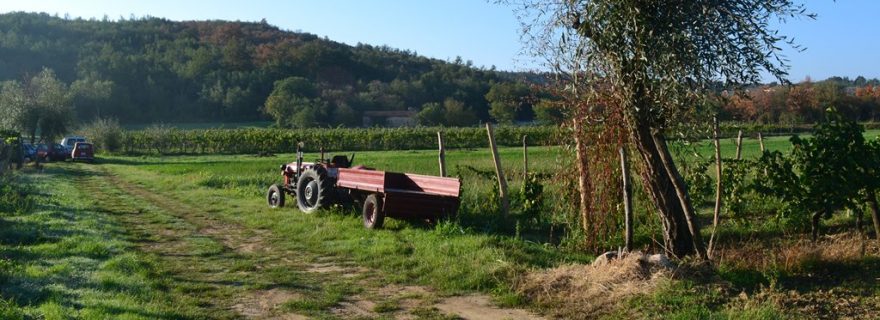Community in Economic "Kriza": Broken Promises and Precarity in a Small Croatian Farming Community
Over two decades have passed since Croatia embarked upon a transition towards a market economy. Even though it is the EU’s most recent member, rural regions continue to struggle with economic precarity.
Wine is the basis of the economy of Istria, an Italian minority region in western Croatia on the northern Adriatic, annexed to Yugoslavia after WWII. I set out to tell a story about Istria’s winemaking transition, but along the way I came to realize that the experiences and perspectives of these winemakers and farmers reflect broader issues that encompass many of the major problems of the transition of post-socialist states to capitalism and democracy.
Broken promises
The post-socialist region has been adapting or ‘transitioning’ to the western European market and political norms for over two decades. While many countries have now joined the EU, many regions within these countries remain quite ‘unfinished’. I arrived in Istria in the midst of an economic crisis plaguing Europe, and talk of the ‘kriza’ pervaded everyday discussions about how people were to make ends meet. From the perspective of my informants, the transition has not created a healthy market and democratic political environment promised by reformers. What I found was that this was leading to falling support in Istria for national and local government initiatives in general.
Yugonostalgia
I lived in Istria for almost six years in all, doing research and writing up. During this time, my interlocutors would regularly point out that they were the only ones to gain a border at the fall of socialism: due to the region’s former special economic status as part of the Free Territory of Trieste, its border with the then Yugoslavia was more porous than today's. Memories abound and circulate in cafes about how easy it was to do business over the border in Italy, with local families selling their entire vintage of wine to two or three restaurants on a recurring basis for decades, thanks to enduring friendships and kinship ties. This has made Istrians more critical than most about how the new regime of economic governance is facilitating or detracting from the region’s development.
Stark contrasts
In the post-socialist context, the market Istrians work in is plagued by low prices, slow payment, problematic enforcement of business contracts, and unfair market control by state insiders. These issues lead Istrians to conclude that what existed during Yugoslavia was a freer and fairer market economy than what exists today, creating continued nostalgia for Tito and Yugoslavia amongst Istrians of all ages, despite the limits on political choices. This harsh verdict on transition affects how Istrians interact with state institutions and in the economy as businesspersons. Contemporary political corruption has led many Istrians to disengage from politics and local governance institutions. A particularly critical voice is that of businessmen who are trying to develop their businesses in an environment plagued by insecurity in payment and contracts, in which legislation changes faster than they can make business changes to comply with them.
‘If you don’t have friends, you don’t exist’
In such circumstances, it is not surprising that winemakers and farmers, in general, are turning towards one another with greater intensity to try and help one another make ends meet. Istrians regularly repeat the phrase that ‘If you don’t have friends, you don’t exist’. Indeed, it is difficult to imagine how any one farming family could manage on its own. By spending time in their cellars and vineyards, I watched as winemakers would buy the grapes of neighbors, not because the grapes were good or because they particularly needed more volume, but because they knew that if they didn’t buy the grapes, the neighbor would lose a year of income. A winemaker told me, ‘It takes a poor man to know poverty’, another commenting on his decision to buy such grapes that ‘If no one buys his grapes, he will be broke, and that will still be my problem because we are neighbors’.
Helping competitors
Once, when I was in the wine cellar of one informant, Marko, a restaurant owner called Ivan came in out of the blue and announced he wanted to buy a large volume of wine. When Marko asked how Ivan had found him, Ivan explained that he usually bought wine from another winemaker, Luka, but that Luka had run out of wine at the end of this especially busy tourist season. Luka had told Ivan that Marko’s wine was of an exceptional quality that rivaled his own, so Ivan should go to Marko. Marko was taken by surprise but was very grateful for this gesture of goodwill. He happily filled Ivan’s car with cases of wine. Businessmen in this community were intently focused on finding ways to help one another, revealing the power of friendships in times of economic precarity.



0 Comments
Add a comment